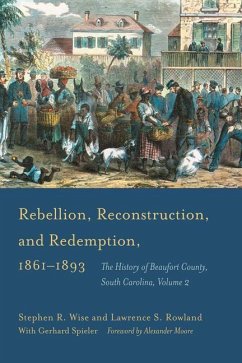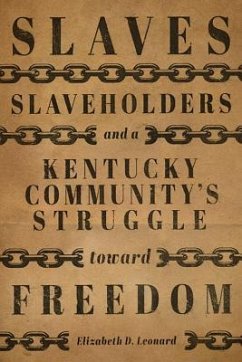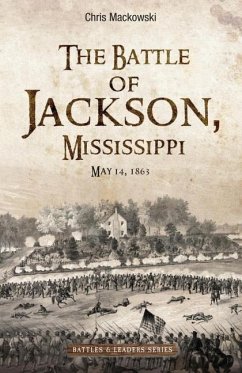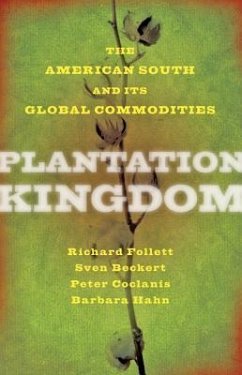Nicht lieferbar

A World Turned Upside Down
The Palmers of South Santee, 1818-1881
Herausgeber: Towles, Louis P
Versandkostenfrei!
Nicht lieferbar
A remarkable chronicle that features one family's thirty-year plummet from prominence to poverty, A World Turned Upside Down follows the trials of the nineteenth-century planters that once dominated the southern banks of South Carolina's Santee River. Voluminous, literate, and rich in detail, the Palmer family letters and journal entries serve as a sustained narrative of the economic pressures and wartime tragedies that shattered the South's planter aristocracy. The Palmer papers offer insight into every aspect of daily plantation life: education, religion, household management, planting, slav...
A remarkable chronicle that features one family's thirty-year plummet from prominence to poverty, A World Turned Upside Down follows the trials of the nineteenth-century planters that once dominated the southern banks of South Carolina's Santee River. Voluminous, literate, and rich in detail, the Palmer family letters and journal entries serve as a sustained narrative of the economic pressures and wartime tragedies that shattered the South's planter aristocracy. The Palmer papers offer insight into every aspect of daily plantation life: education, religion, household management, planting, slave-master relations, and social life. While the antebellum writings reveal the reinforcement of rigid attitudes about social, economic, political, and religious concerns, the wartime correspondence depicts the deterioration of those attitudes and of the Palmers' lifestyle. The letters tell of women sewing clothing for themselves and for soldiers, sending provisions to the troops, and "making do" with meager resources. The papers also describe problems facing the family patriarch - shortages, inflated Confederate currency, directives from the Confederate Congress on what to plant, and requisitioned labor - as he managed the plantations without the help of his sons and nephews. In addition to overwhelming material concerns, the Palmers chronicle the emotional impact of wartime casualties and of God's seeming indifference to the South and, more specifically, to the planters. At the close of the Civil War, the Palmers had no cash, horses, mules, seed, or human labor but plenty of debt, and their letters tell of unprofitable years of contract labor, experiences with sharecropping, and holdings that nevermatched prewar productivity. Of particular interest, they discuss the desertion and loss of slaves, the difficulties of adjusting to Reconstruction, the search for nonagricultural employment, and changes in the family's values, goals, and social circles as the Palmers dealt with the collapse of their way of life.










